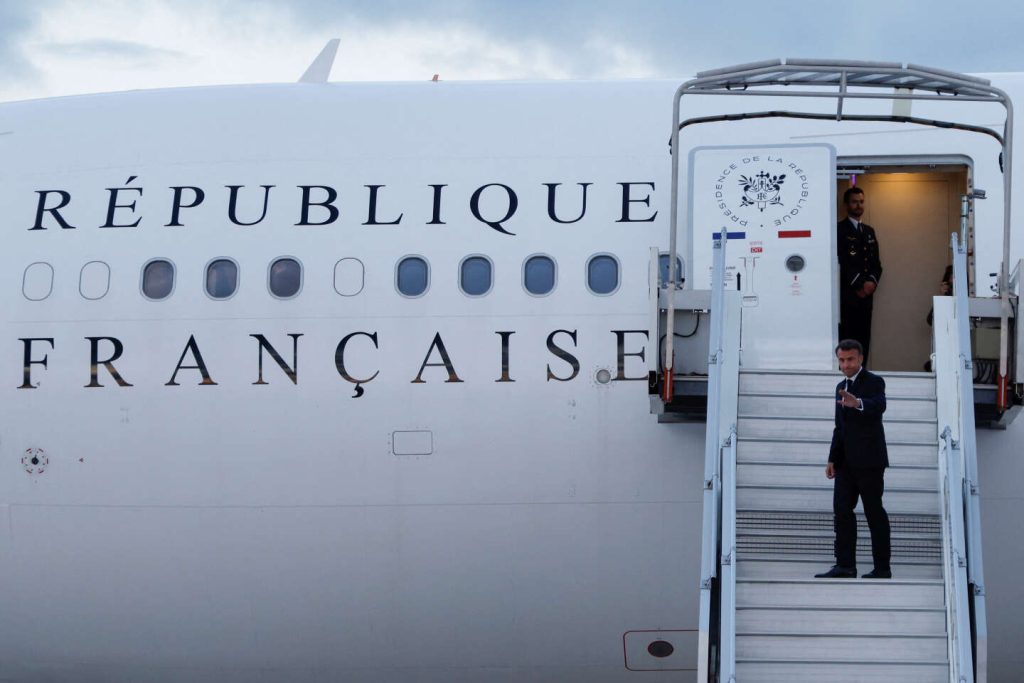Emmanuel Macron is preparing to fly to Nouméa and New Caledonia from Orly airport on May 21, 2024. This visit comes eight days after the beginning of riots in the archipelago, where six people have died and a state of emergency was declared on May 15. The decision to visit was announced following a cabinet meeting, with little advance notice, surprising many including local officials such as the President of the New Caledonian government, Louis Mapou. Despite the surprise visit, the President is determined to address the ongoing unrest and restore order in the region.
The situation in Nouméa remains volatile, with localized clashes and roadblocks reported during the night prior to Macron’s arrival. The Archbishop of Nouméa described the once idyllic island as being closer to hell than paradise, highlighting the severity of the current unrest. Macron is accompanied by ministers Gérald Darmanin, Sébastien Lecornu, and Marie Guévenoux, as they aim to engage in dialogue and plan for the economic reconstruction of the region. This visit comes amidst political tensions and a shifting landscape within French politics, with the Rassemblement National now supporting a referendum on self-determination. Macron’s decision to intervene directly in the New Caledonian crisis reflects the complexities at play in the region.
The visit to New Caledonia is reminiscent of a moment in 1985 when François Mitterrand declared his intention to visit the island in response to violent anti-colonialist riots. Macron’s trip is seen as an attempt to address the unrest and instability that has gripped the region, with a focus on resolving political and economic challenges. The President’s decision to take charge of the situation reflects the urgency of the crisis and the need for immediate action to restore peace and stability. The visit is intended to signal Macron’s commitment to supporting the region through a challenging period.
The President’s visit is seen as a response to calls for dialogue and reconciliation in New Caledonia, as well as a recognition of the need for economic recovery in the aftermath of the unrest. Macron’s delegation, which includes key ministers, underscores the government’s commitment to addressing the root causes of the crisis and working towards a peaceful resolution. The visit also highlights the complexities of the political landscape in New Caledonia, with various parties and factions having differing views on the path forward. Macron’s presence in the region is intended to provide a sense of reassurance and support to the local population.
In conclusion, Emmanuel Macron’s visit to New Caledonia comes at a critical time for the region, as it grapples with political instability and social unrest. The President’s decision to intervene directly in the crisis reflects the urgent need for dialogue and reconciliation, as well as the importance of addressing the underlying economic challenges facing the region. Macron’s visit is intended to signal France’s commitment to supporting New Caledonia through a challenging period and working towards a peaceful and sustainable resolution to the crisis.


